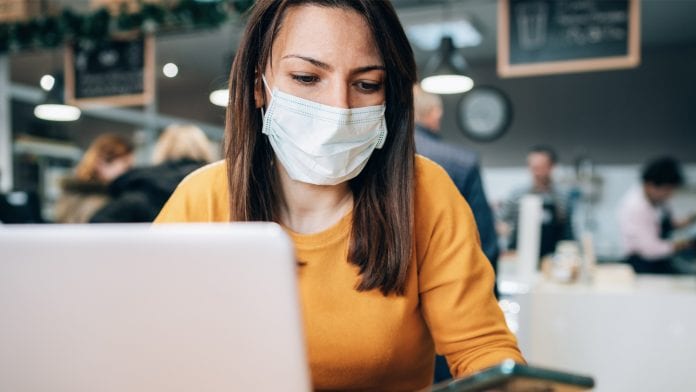
A new app will allow individuals to get an at-home risk assessment based on how they feel and be directed to the nearest testing facility if deemed at risk.
Researchers from the Augusta University, Georgia, USA are working with developers to finalise the app to help identify individuals who are at high risk of testing positive for coronavirus. The app should be available within a few weeks and will be free to download and use because it addresses a public health concern.
Using AI to support public health officials
Published in the journal Infection Control & Hospital Epidemiology, the researchers explained, that the app will also help provide local and public health officials with real-time information on emerging demographics of those most at risk for coronavirus so they can better target prevention and treatment initiatives.
Dr Arni S.R. Srinivasa Rao, director of the Laboratory for Theory and Mathematical Modeling in the MCG Division of Infectious Diseases at Augusta University and the study’s corresponding author explained: “We wanted to help identify people who are at high risk for coronavirus, help expedite their access to screening and to medical care and reduce spread of this infectious disease.”
The app considers travel history as well as symptoms
The app will ask individuals where they live; other demographics like gender, age and race; and about recent contact with an individual known to have coronavirus or who has travelled to areas, like Italy and China, with a relatively high incidence of the viral infection in the last 14 days.
The application will also gather information about the common symptoms of infection and their duration including:
The app will also enable the collection of similar information for those who live with the individual but who cannot fill out their own survey.
Users will receive their own risk assessment
Artificial intelligence will then use an algorithm Rao developed to rapidly assess the individual’s information, send them a risk assessment which explains whether they are no risk, minimal risk, moderate or high risk.
The app will alert the nearest facility with the testing ability that a health check is likely needed. If the patient is unable to travel, the nearest facility will be notified of the need for a mobile health check and possible remote testing.
Giving healthcare providers the opportunity to better prepare
The app will enable investigators to learn more about how the virus is spreading and where it’s circulating as the collective information of many individuals will aid rapid and accurate identification of geographic regions, including cities, counties, towns and villages. This also gives health care facilities and providers to analyse the risk in their region and better prepare the resources that they may need.
Dr Jose Vazquez, chief of the MCG Division of Infectious Diseases, and Rao explain that it is imperative that we evaluate novel models in an attempt to control the rapidly spreading virus and once the app is ready, it will live on the augusta.edu domain and likely in app stores on the iOS and Android platforms.
Faster identification means more timely intervention
Technology can assist faster identification of possible cases and aid timely intervention the researchers explain, noting that the coronavirus app could be easily adapted for other infectious diseases.
Due to the accessibility and rapidity of the app paired with machine intelligence means that it also could be utilised for screening wherever large crowds gather, such as major sporting events.
Vazquez explains that: “We are trying to decrease the exposure of people who are sick to people who are not sick, we also want to ensure that people who are infected get a definitive diagnosis and get the supportive care they may need”
Preventing panic by simplifying peoples lives
The investigators hope this readily available method to assess an individual’s risk will actually help to appease any developing panic or undue concern over coronavirus.
Rao explains that: “People will not have to wait for hospitals to screen them directly, we want to simplify people’s lives and calm their concerns by getting information directly to them.”
If concern about coronavirus prompted a lot of people to show up at hospitals, many of which already are at capacity with flu cases, it would further overwhelm those facilities and increase potential exposure for those who come, says Vazquez.
As of this week, about 90,000 cases of coronavirus have been reported in 62 countries, with China having the most cases.
Do you want the latest news and updates from Health Europa? Click here to subscribe to all the latest updates, and stay connected with us here.









